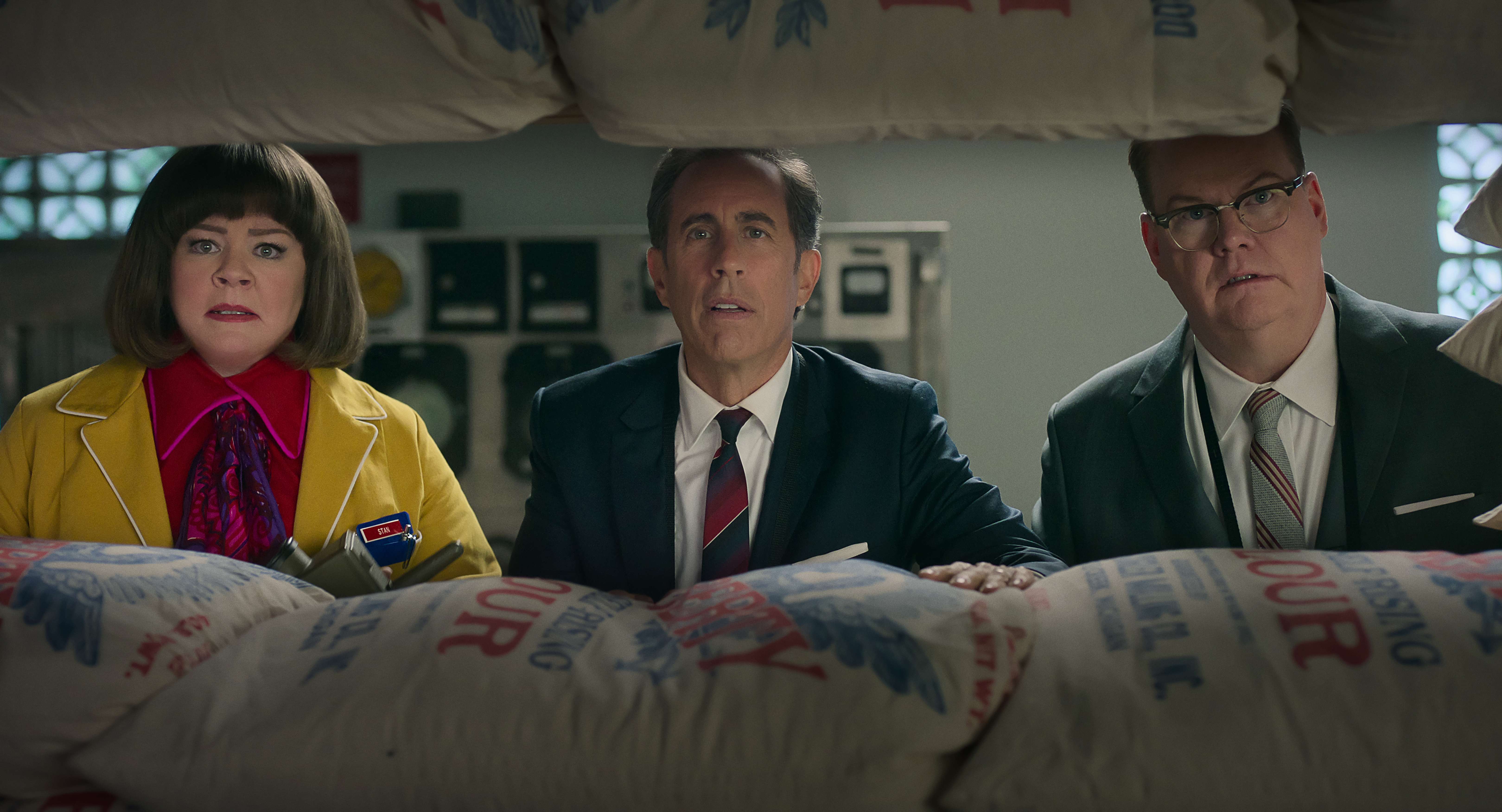Edsel Kellogg III leads Kellogg’s against Marjorie Post’s Post when the two cereal companies compete against each other to revolutionize breakfast traditions in Netflix’s comedy film ‘Unfrosted.’ Even though Edsel is a proud bearer of the renowned family name Kellogg, he knows he is not the most intelligent man to head the company, especially when Post marches forward with the idea behind Country Square. Still, with the help of Bob Cabana, he rewrites history with the invention of Pop-Tarts. Even though Kellogg’s is a real company named after an actual family, Edsel doesn’t have an exact counterpart in real life!
The Fiction and Reality Behind Edsel Kellogg III
Edsel Kellogg III is a character Jerry Seinfeld created with Spike Feresten, Barry Marder, and Andy Robin, the co-writers of ‘Unfrosted.’ Even though the screenwriters aspired to chronicle Kellogg’s and Post’s rivalry that gave birth to Pop-Tarts in real life, they didn’t want to make an origin story with historical accuracy. “That was the guiding principle: there were no rules as far as it had to be the person or not be the person; it’s just whatever’s funniest,” Feresten told Eater about creating the film’s fictitious characters. Edsel is one of these characters.

Seinfeld and his writers needed an outrageously hilarious caricature character as the head of Kellogg’s to serve the movie’s narrative. Such a character enables Seinfeld’s protagonist, Bob Cabana, to be the nucleus of a farcical mission: creating a toaster pastry with people who are not even in the field of food. Throughout the movie, Edsel presents himself as nothing shorter than a joke. Understandably, it is hard to present a character based on a real person as preposterous as Edsel, which makes it clear why the creative heads behind the project wanted a fictional Kellogg’s head. As Feresten said, relying on fictional characters allowed them to make the film funnier.
In real life, Kellogg’s head during the 1960s was William E. LaMothe. Kellogg’s officially credited him as the mastermind behind Pop-Tarts. The cereal company’s website reads, “Kellogg chairman William E. LaMothe, a.k.a Bill, had a vision. A vision of transforming a delicious breakfast into a toaster-ready rectangle that could go anywhere.” LaMothe and Edsel are entirely different in every way possible. While Edsel is a ludicrous figure who cherishes his reputation only because of Cabana’s hard work, LaMothe is remembered for expanding the company’s international sales from 30% to 50% by the 1990s. He also served the company for fifty years, more than its founder, W.K. Kellogg.
As far as Kellogg’s is concerned, LaMothe is a legendary figure still revered in the company for his unparalleled contributions. “Mr. LaMothe’s five decades of service spanned an era of unprecedented economic growth and social change. Yet more than longevity, the hallmark of his career has been his visionary leadership. In that respect, he has upheld the best traditions of our founder,” reads W.K. Kellogg Foundation’s 2000 annual report. Considering the prestige of such a leader, the last thing Seinfeld and his team might have wanted is to tarnish him by portraying him comically.

Furthermore, although LaMothe was the real head of Kellogg’s during the 1960s, he was not from the Kellogg family, which is a requisite for the character. The film can only explore the plights of two cereal company leaders who want to protect the prestige of their respective families only if Kellogg’s head is a Kellogg as Edsel. Since LaMothe wasn’t one, relying on a fictional character makes sense. LaMothe retired from Kellogg’s in 1992 as Chairman Emeritus before retiring from the company board in 2000. He passed away on September 21, 2022, at the age of 95 at his home in Ave Maria, Florida.
Similarly, Edsel’s rival, Marjorie Post, is a fictionalized version of the businesswoman of the same name. In reality, Marjorie was not involved in the day-to-day operations of Post during the 1960s. “The fella who was running Post, I’m sure he was a nice guy, but nobody knew who he was. It was yet another man in the 1960s executive world, and we wanted women, so we said, ‘Well, Marjorie Post didn’t really run the day-to-day operations, but let’s just have her do that here.’ She’s very interesting,” Feresten explained the reasoning behind Marjorie’s inclusion to Eater, which also clarifies why LaMothe didn’t inspire Edsel.
Read More: Is Donna “Stan” Stankowski Based on an Actual Kellogg’s Scientist?


You must be logged in to post a comment.